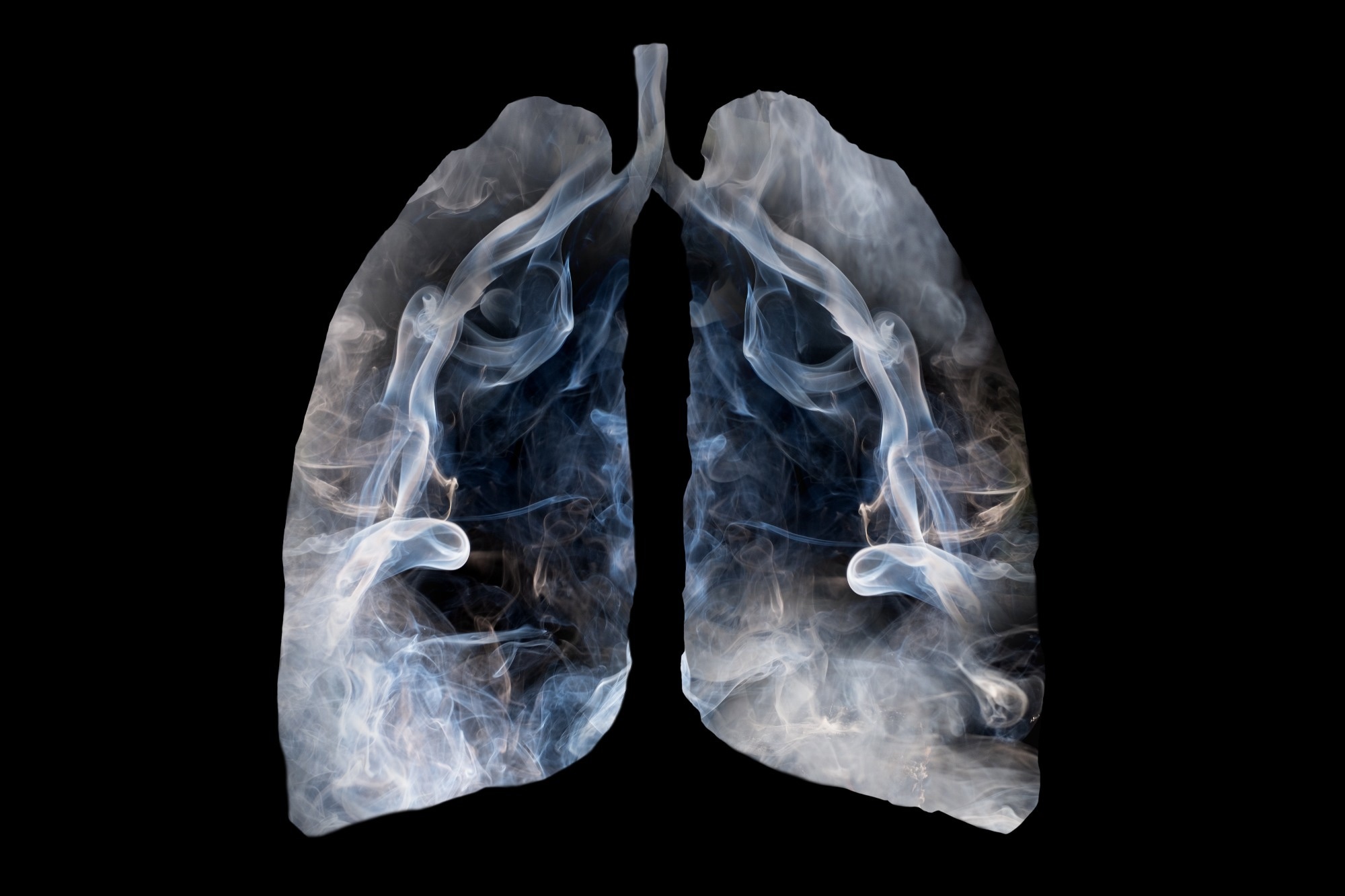What is the efficacy of aerosol treatment for SARS-CoV-2 infection?
In a recent study published in the Molecular Therapy journal, researchers assessed the efficacy of the scFv76 antibody against severe acute respiratory syndrome coronavirus 2 (SARS-CoV-2) lung damage.

Since the progression of coronavirus disease 2019 (COVID-19) is unpredictable, the recurrence of severe pulmonary disorders and the emergence of new variants cannot be ruled out. This is primarily due to the uneven vaccination coverage worldwide and the waning efficacy of COVID-19 vaccines. Additionally, the observation of numerous dangerous post-acute sequelae of SARS-CoV-2 infection, particularly those affecting the nervous and cardiovascular systems, requires the urgent development of therapeutic measures that are simple to implement and capable of controlling the infection in its early stages.
About the study
In the present study, researchers assessed the efficacy of nebulized scFv76 in treating COVID-19.
The potential to compete for the binding of the SARS-CoV-2 Omicron BA.1 and BA.2 spike proteins to human angiotensin-converting enzyme-2 (hACE-2) was examined by enzyme-linked immunosorbent assay (ELISA) to assess its reactivity to the Omicron variants. Subsequently, using surface plasmon resonance (SPR), the binding affinity of scFv76 towards the Delta and Omicron spike proteins was evaluated. Authentic SARS-CoV-2 Delta and Omicron BA.1 viruses were used to further investigate the neutralization of infectivity using a microneutralization assay of the cytopathic effect (CPE) observed in Vero E6 cells.
scFv76 was assessed in vitro to determine its capacity to inhibit SARS-CoV-2 Omicron BA.1 or BA.2 spike-induced fusion of pulmonary cells. Additionally, scFv76 's antiviral neutralization potency of scFv76 was evaluated in vitro in Delta-infected lung Calu-3 cells using RT-qPCR in contrast to the non-neutralizing control antibody scFv5. By administering 1×105 TCID50 SARS-CoV-2 Delta variant by intranasal challenge, pneumonia infection in transgenic hACE2 mice was induced to investigate the pharmaceutical effects of the nebulized antibody.
Results
The study results demonstrated that scFv76 had the same potency against SARS-CoV-2 Delta and can inhibit Omicron BA.1 and BA.2 spike binding to ACE2 at IC50 concentrations less than 2.5 nM. Moreover, Delta has a KD of 0.6 nM, while BA.1 and BA.2 have KD of 6.3 and 14.5 nM, respectively. scFv76, but not scFv5, exhibited a neutralizing effect against the SARS-CoV-2 Omicron BA.1 and BA.2 pseudotyped viruses, with IC50 values of 2.84 and 2.47 nM, respectively. Against the Delta and Omicron BA.1 variants in this assay, scFv76 showed IC50 values of 1.99 and 6.38 nM, respectively, while the non-neutralizing antibody scFv5 had no antiviral action.
When incubated with nanomolar quantities of the scFv76 antibody, the team noted a remarkable inhibition of the fusion between Omicron BA.1 and BA.2 spike-expressing HEL293T cells and hACE2 receptor-expressing A549 cells. With an IC50 of 13.5 nM, scFv76 was shown to suppress infection, while the control antibody showed no effect at concentrations over 200 nM.
The group of mice treated with scFv76 showed a considerable body weight recovery four days after infection, in contrast to the infected mice treated with vehicle. This outcome was associated with a roughly 100-fold decrease in the lung viral ribonucleic acid (RNA) copy number as determined by reverse transcription-quantitative polymerase chain reaction (RT-qPCR) and a decrease in infectious viral particles as determined by TCID50. Notably, the nebulized scFv76 significantly decreased viral RNA in the nasal turbinates and decreased the infectious virus titer in the lungs to undetectable levels in three of five animals.
Histopathological examination of lung sections consistently revealed a considerable decrease in lung interstitial edema, hematological endoalveolar extravasation, cellular inflammatory infiltrates in the alveolar/interstitial region, and thickening of the alveolar septum. Overall, the Delta virus-induced lung inflammation and damage could be greatly reduced by administering nebulized scFv76, but not phosphate-buffered saline (PBS).
Data showed that important pro-inflammatory cytokines such as interleukin-6 (IL-6), IL-1, IL-21, IL-10, IL-4, tumor necrosis factor-alpha (TNF-α), and chemokines such as C-C motif ligand 2 (CCL2), CCL20, C-X-C motif ligand 1 (CXCL1), and CXCL-10 were significantly reduced after being exposed to scFv76 aerosol. In the lungs of mice given scFv76 treatment, all these interferon (IFN) genes led to a marked reduction. The medication also inhibited the overexpression of molecules that cause infection-related tissue damage, including adhesion molecules, angiopoietin 2, and inflammasome effectors like nod-like receptor protein 3 (NLRP3).
The contact region of the scFv76 fragment overlapped with the ACE2 binding interface, thus matching the locations of 13 out of the 17 ACE2-binding residues on the SARS-CoV-2 receptor-binding domain (RBD). This is significant since the angle of approach of scFv76 to the RBD mirrors that of ACE2. In this regard, the structural basis for the powerful scFv76 neutralizing activity was provided by the near structural similarity of the scFv76 and ACE2 binding modes to the RBD and the resulting competition for binding.
The study findings showed that scFv76 aerosol therapy could effectively reduce viral proliferation, greatly lowering lung inflammation and damage. The researchers believe that COVID-19 can be treated with scFv76 antibody aerosol therapy regardless of the variant causing the infection.
- Milazzo FM, Chaves-Sanjuan A, Minenkova O, Santapaola D, Anastasi AM, Battistuzzi G, Chiapparino C, Rosi A, Pich EM, Albertoni C, Marra E, Luberto L, Viollet C, Spagnoli LG, Riccio A, Rossi A, Santoro MG, Ballabio F, Paissoni C, Camilloni C, Bolognesi M, De Santis R. (2022). Spike mutation resilient scFv76 antibody counteracts SARS-CoV-2 lung damage upon aerosol delivery. Molecular Therapy. doi: https://doi.org/10.1016/j.ymthe.2022.09.010
Posted in: Medical Science News | Medical Research News | Disease/Infection News
Tags: ACE2, Angiotensin, Antibody, Assay, binding affinity, CCL2, CCL20, Chemokines, Coronavirus, Coronavirus Disease COVID-19, covid-19, Cytokines, Edema, Efficacy, ELISA, Enzyme, Genes, in vitro, Inflammasome, Inflammation, Interferon, Interleukin, Interleukin-6, Ligand, Lungs, Necrosis, Omicron, Pneumonia, Polymerase, Polymerase Chain Reaction, Proliferation, Protein, Receptor, Respiratory, Ribonucleic Acid, RNA, SARS, SARS-CoV-2, Severe Acute Respiratory, Severe Acute Respiratory Syndrome, Syndrome, Transcription, Transgenic, Tumor, Tumor Necrosis Factor, Virus

Written by
Bhavana Kunkalikar
Bhavana Kunkalikar is a medical writer based in Goa, India. Her academic background is in Pharmaceutical sciences and she holds a Bachelor's degree in Pharmacy. Her educational background allowed her to foster an interest in anatomical and physiological sciences. Her college project work based on ‘The manifestations and causes of sickle cell anemia’ formed the stepping stone to a life-long fascination with human pathophysiology.
Source: Read Full Article
